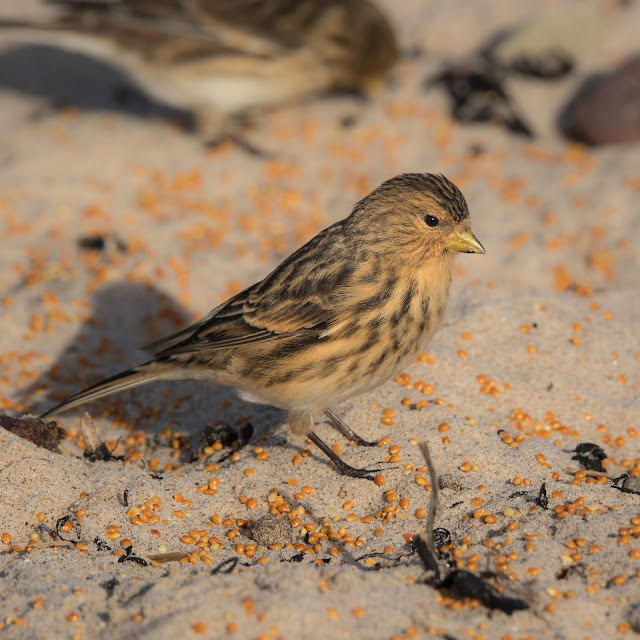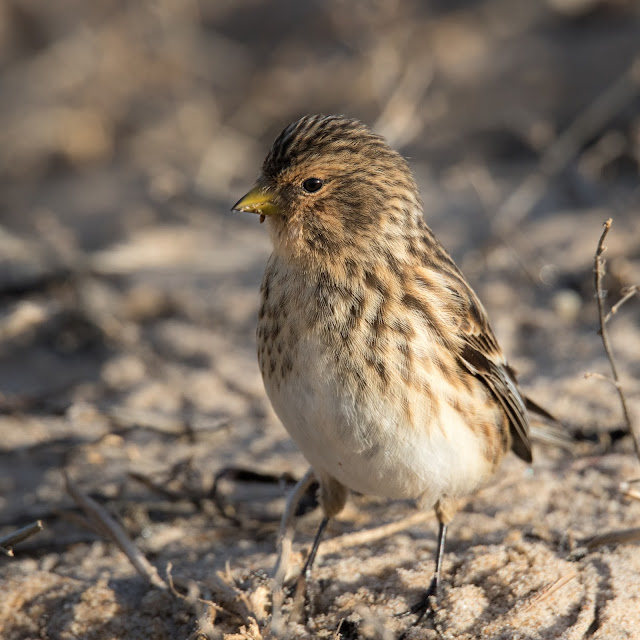My Blog List
Saturday, 25 November 2017
Bird of the week - Twite
The flock of twites has returned to Druridge Bay this winter and numbers about 100 birds. They are enchanting to watch as they gradually hop closer and closer to feed before suddenly twinkling off across the beach or over the dunes. At times they were closer to me than the minimum focus on my lens (2.5m), allowing some intimate portraits. The details of their colouring are quite variable.
The BTO and Wikipedia give the twite's binomial name as Linaria flavirostris whereas the RSPB and Collins guide give it as Carduelis flavirostris. It has a greyish bill in summer and a yellow bill in winter (hence flavirostris).
Twites are rare and endangered birds and are on the red list. Most of the UK population is in north-west Scotland but in England a few breed in the south Pennines. The rest of the European breeding population is almost all in Norway.
The BirdTrack reporting rate has been low this year with a recent increase as birds have moved to the coast for the winter.
In Thomas Bewick's A History of British Birds (1797) the twite was the mountain linnet. He also had a mountain finch (our brambling) and a mountain sparrow (tree sparrow).
This is Archibald Thorburn's painting of twites.
In an attempt to reverse the population decline the RSPB is putting a lot of time, money and effort into the England Twite Recovery Project. You can read more about it and watch a video on twite ID here. You can listen to the BBC Radio 4 Tweet of the Day on the twite here.
Subscribe to:
Post Comments (Atom)
















Looks like the taxonomy of the finches was re-jigged in 2013 or thereabouts - Carduelis was split into several genera on the basis of genetic studies. This moved the twite to Linaria, and was also the move that put redpolls into Acanthis. https://en.wikipedia.org/wiki/Finch
ReplyDeleteI know it's geeky but I do find it interesting! Thanks for leading me to this Chris!
Thanks Phil. Mystery solved. I can see why my Collins isn't up to date but perhaps we should tell the RSPB?
Delete